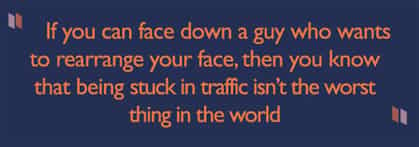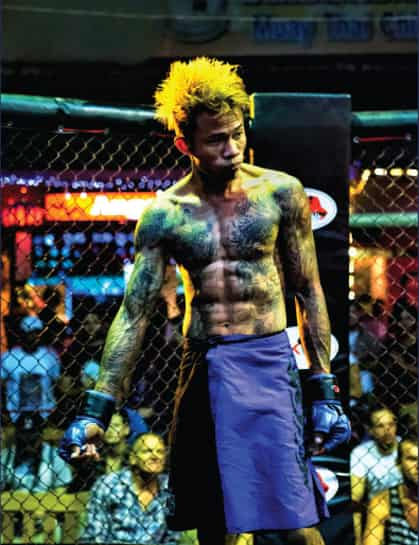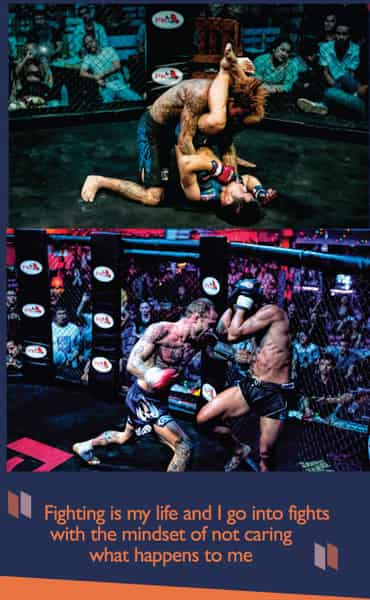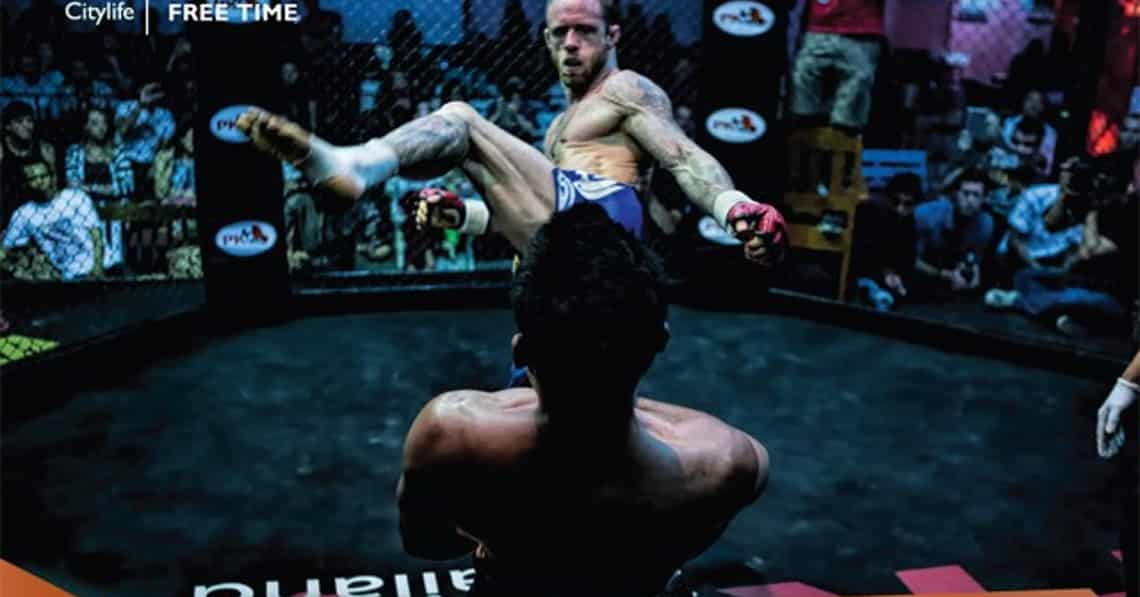If you live in Chiang Mai, you probably already know about the Loi Kroh Boxing Stadium and the countless Muay Thai fights held there. But now, it’s not just sweaty, tattooed guys kicking the crap out of each other; it’s sweaty, tattooed guys kicking the crap out of each other INSIDE A CAGE. Welcome to Chiang Mai’s first ever MMA (Mixed Martial Arts) cage fight. No escape, no surrender.
“MMA is currently one of the most popular sports in the world and I’m delighted to introduce the cage fighting aspect of the sport to Chiang Mai,” says Parichat Kaenchan, head of PK Boxing and co-organiser of the Chiang Mai Fighting Championship (CMFC). She got into the business through her British ex-husband, who mentored her and taught her all the aspects of managing and running a company. With this knowledge and her love for martial arts, she founded PK Boxing five years ago. Since then, her company has grown into a globally renowned manufacturer of combat sports equipment, even becoming a major supplier to the international Ultimate Fighting Championship (UFC). But above all she is excited to bring MMA, for the first time ever, to her own hometown.

Upon my arrival at the Loi Kroh Boxing Stadium, I felt surprisingly less tension than I expected leading up to these highly anticipated fights. At 1,000 baht a pop, the tickets aren’t exactly cheap and the crowd is rearing to go. But the fighters are focused on the job at hand, and seem quite relaxed. A few head into the cage to practice combinations while others exchange ideas and strategise. One of the most notable fighters is Dylan “The Muscle” Fussell, an American expat from Oregon and a career MMA and Muay Thai fighter now coaching and competing full time at Team Quest Thailand training camp in Chiang Mai. Fussell looks at fighting as a way to overcome life’s everyday problems. “If you can face down a guy who wants to rearrange your face, then you know that being stuck in traffic isn’t the worst thing in the world,” he tells me with a smile. Fussell is looking forward to his fight but makes no illusions about his opponent: “I saw him fight three weeks ago and he’s as tough as nails. But I’m going in there to kill or be killed; we’re not in there to play around.”
People are still filing in as I talk with Ali Motamed, a young Iranian Muay Thai fighter with a love of the sport almost as deep as his well of confidence. He’s not the tallest fighter but what he lacks in height he makes up for in toughness and he is definitely one of the most ripped guys in the stadium. He tells me he no longer feels nervous before his own fights (he’s fought four times in the past month!), and is more anxious for his Team Quest brothers than anything else. “Fighting is my life and I go into fights with the mindset of not caring what happens to me,” he says. “‘Just do it’ is my motto.” His catchphrase? “Train, eat, sleep, repeat.”
It’s nearly fight time. I grab a quick word with Adrien Rubis, a French national who’s been living in Chiang Mai for three years. A former soldier for the French Army, Rubis already had experience with combat sports before coming to Chiang Mai to learn Muay Thai at Team Quest. He believes that being a fighter is not only a sport but something bigger: “It’s a confrontation between two men. We live to train and sometimes we get hurt. When I’m in the ring I think: now it’s time to do what I’ve been training to do and I don’t care who my opponent is. But once we step out of the ring, we can be friends.”
The CMFC was supposed to start at 9 p.m., at least that’s what’s written on the flyer that was handed to me when I arrived. I take a quick look around and see that most of the farang audience arrived early and are getting impatient. The Thais, obviously more accustomed to delays, mosey in as the clock creeps toward 10. As we wait for the CMFC to get going, an announcer with a heavy American accent tries to get everyone pumped. His good intentions are wasted; the crowd simply wants the fighting to begin.
Five minutes before the action starts, the 
First up is Ali Motamed, who finishes off his opponent within the first minute of the first round. After a fury of punches and kicks his opponent falls unconscious to the ground. A beautiful demonstration of a classic knock-out.
The second fight ends nearly as swiftly as the first. Rubis takes one blow too many and blacks out for a few moments; but, like a true warrior, he soon gets back up and continues to battle. The left side of his face takes a battering and soon blood starts dripping from the corner of his eye down to his chin. He cringes in pain and shortly afterwards the referee stops the bout and awards the win to his opponent by TKO (technical knock-out).
As the fights go, the crowd gets larger and noisier. I’m surprised to see that the loudest cheers and jeers come from Thai women, while the farang and Thai men quench their thirst with beers and chat with friends. Between fights Parichat waves her arms around from the sidelines, trying to catch the attention of an elderly man in charge of the light effects and music who seems utterly oblivious to her actions.
The third fight is the first cage fight. A stark transformation passes through the crowd as they jostle and push right up to the cage to witness the first MMA fight in the region. The difference between Muay Thai and MMA is immediately made clear as the fighters hit the ground and wrestle, trying for a submission. The pace seems to have slowed incredibly compared to the previous fights. But as the bout loses speed, suddenly one fighter taps out after what looks to be an incredibly painful arm bar, bringing an abrupt end to the fight.

As we enter the last fight of the night, a faded young Canadian tourist sits next to me and recounts his belief that the outcome of all the fights are arranged beforehand and that the fighters fake their injuries. He compares Muay Thai and MMA to American wrestling (WWE), which I laugh off. Despite his ignorant theory (these fights, unlike some of the obvious show fights you may find on Loi Kroh, are clearly real), he does acknowledge the fact that any one of these fighters could probably kill him if he entered the cage himself. I agree and proceeded to ignore his mood dampening comments. Shortly afterwards, Fussell wins his fight with a few punches and a furious knee to the face of his opponent, who goes out cold and drops to the canvas.
It’s 15 past midnight when the fight finishes and soon the crowds head for nearby bars while others take pictures of themselves and friends inside the fighting cage. I approach Fussell, who’s sitting in the back with his hand in ice. “I think I broke my thumb during the first round, but hopefully it’s just sprained,” he says nonchalantly. “I was really happy when we started the third round because then I knew the end was near.” I’m surprised, not having noticed even a pained expression on his face during the first round. I guess that’s just how tough “The Muscle” is, and just how far he’s willing to go to win the fight.
